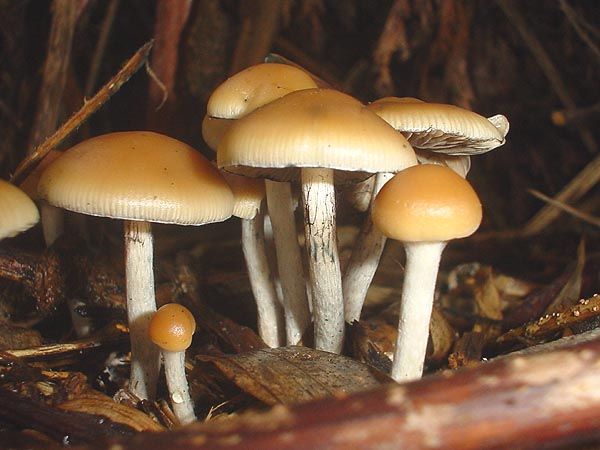Mushroom
What Are Psylocybin Magic Mushroom and How do they work?
What Are Psilocybin Magic Mushrooms and How Do They Work?
Magic mushrooms, scientifically referred to as psilocybin mushrooms, are a fascinating and increasingly studied class of fungi that hold the key to understanding altered states of consciousness, therapeutic breakthroughs, and profound mental insights. In this guide, we’ll dive deep into what psilocybin magic mushrooms are, how they interact with the brain, and the many ways they are being used and studied in modern science.
What Are Psilocybin Magic Mushrooms?
Psilocybin magic mushrooms are naturally occurring fungi containing the psychoactive compound psilocybin, which, when ingested, is converted by the body into psilocin. This active compound is responsible for the profound alterations in perception, mood, and cognition often associated with psychedelic experiences.
A Brief History
For centuries, these mushrooms have been used in spiritual and healing rituals by indigenous cultures, particularly in Central and South America. Known as “teonanácatl” or “God’s flesh” by the Aztecs, psilocybin mushrooms were revered for their ability to connect users with the divine.
How Do Psilocybin Mushrooms Work?
When ingested, psilocybin is converted to psilocin, which binds to serotonin receptors in the brain, particularly the 5-HT2A receptor. This interaction creates a cascade of effects, including:
Enhanced Connectivity Between Brain Regions: Psilocybin reduces activity in the brain’s default mode network (DMN), the area responsible for self-referential thoughts. This enables greater communication between previously unconnected regions of the brain.
Altered Perception: Users often report visual and auditory distortions, such as seeing patterns or hearing enhanced sounds.
Ego Dissolution: A hallmark of the psilocybin experience is the dissolution of the sense of self, which many describe as a deeply spiritual or unifying experience.
Benefits of Psilocybin Mushrooms
Mental Health and Therapy
Studies have shown promising results in using psilocybin for treating mental health conditions:
Depression: Clinical trials have demonstrated psilocybin’s ability to alleviate symptoms of treatment-resistant depression.
Anxiety: Particularly for patients with terminal illnesses, psilocybin has been shown to reduce anxiety and improve quality of life.
PTSD: Emerging research indicates that psilocybin may help reframe traumatic memories.
Enhanced Creativity and Problem Solving
Many users report heightened creativity and new perspectives after a psilocybin experience, which has led to its use in problem-solving and personal growth.
Spiritual and Personal Growth
The mystical experiences induced by psilocybin often lead to increased feelings of interconnectedness, gratitude, and understanding of life’s bigger picture.
Psilocybin Effects on the Brain
The brain on psilocybin operates differently than in ordinary states of consciousness. Functional MRI studies reveal that:
Activity in the Default Mode Network (DMN) decreases, allowing users to experience “ego dissolution.”
Increased Synaptic Plasticity: Psilocybin may promote the growth of neural connections, potentially aiding long-term cognitive and emotional benefits.
Neurogenesis: While still under investigation, psilocybin may contribute to the development of new neural pathways.
Understanding the Science of Psilocybin Therapeutic Uses
Modern science is uncovering new applications for psilocybin. Its therapeutic potential extends beyond mental health, with researchers exploring its efficacy in:
Addiction Treatment: Psilocybin shows promise in helping people overcome addiction to substances like alcohol and nicotine.
End-of-Life Care: Psilocybin-assisted therapy is being used to help terminally ill patients cope with existential distress.
Cluster Headaches: Anecdotal evidence suggests that psilocybin may alleviate cluster headaches, though more research is needed.
A Guide to Using Psilocybin Mushrooms Safely
If you are considering the use of psilocybin mushrooms, it’s essential to do so responsibly. Here are a few guidelines:
Set and Setting: Choose a safe, comfortable environment and a positive mental state.
Dosage Matters: Start low and work up slowly to understand your tolerance.
Have a Trusted Guide: A sober and experienced trip sitter can ensure your experience is safe.
Understand Legal Risks: Laws around psilocybin mushrooms vary globally; ensure you know the regulations in your area.
The Future of Psilocybin Magic Mushrooms
As global attitudes toward psychedelics shift, psilocybin mushrooms are moving from the fringes of culture to the center of serious scientific research. Clinical trials, legalization efforts, and public interest suggest a bright future where these fungi could revolutionize mental health treatment.
Conclusion
Psilocybin magic mushrooms are more than just a curiosity—they’re a doorway to understanding consciousness, healing the mind, and connecting with something greater. From altering brain connectivity to offering relief for mental health conditions, their potential is immense. As we continue to explore their benefits and therapeutic applications, it’s clear that these extraordinary fungi are not only part of our past but also a promising part of our future.
Frequently Asked Questions (FAQs):
- What are psilocybin mushrooms used for?
Psilocybin mushrooms are used for mental health therapy, spiritual exploration, and research into altered states of consciousness. - How do psilocybin mushrooms affect the brain?
Psilocybin reduces activity in the default mode network and promotes new neural connections, leading to altered perception and therapeutic effects. - Are psilocybin mushrooms legal?
Laws vary globally. Some regions have decriminalized or legalized psilocybin for medical or recreational use, while others still prohibit it. - What are the benefits of psilocybin mushrooms?
They include mental health benefits like alleviating depression and anxiety, enhanced creativity, and aiding addiction recovery. - Can psilocybin mushrooms help with addiction?
Yes, studies suggest psilocybin can be effective in treating addictions to substances like nicotine and alcohol.

